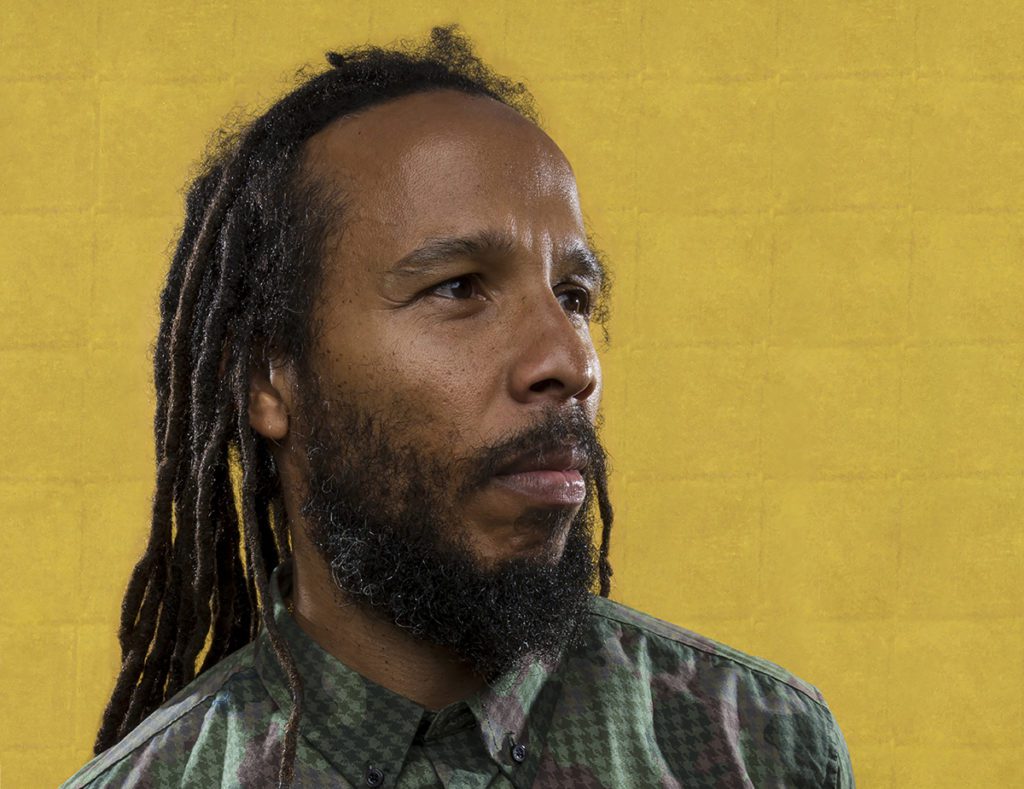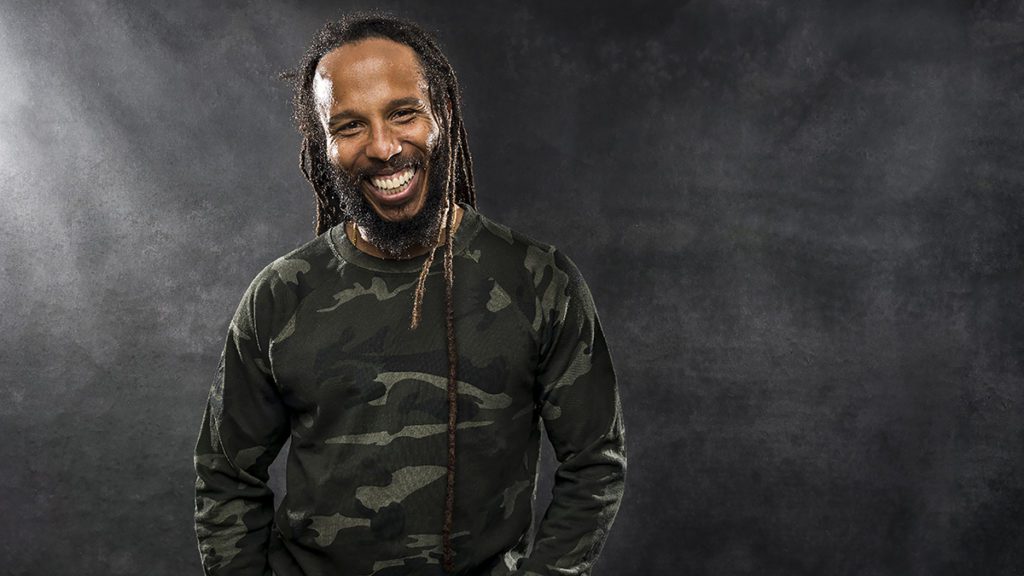Bob Marley would have been 75 years old this year, and while the reggae legend’s life was tragically cut short, his oldest son, Ziggy, has not only carried on his father’s musical legacy but his quest to make the world a better place, too.
Days after being wounded in an assassination attempt at his home in 1976, Bob Marley performed at a peace concert in Kingston, Jamaica, famously saying, “The people who are trying to make this world worse aren’t taking a day off. How can I?”
That’s a lesson that Ziggy Marley has taken to heart.
Winner of eight Grammy awards for his music, Ziggy’s humanitarian work has included serving as a Goodwill Youth Ambassador for the United Nations and participating in Bob Marley Foundation initiatives worldwide.
His own charity, U.R.G.E. (Unlimited Resources Giving Enlightenment), a non-profit organization whose mission ranges from building new schools to operating health clinics, receives a portion of the proceeds from his latest project, More Family Time, a new children’s reggae album featuring four of his school-age children as well as the voices of Sheryl Crow, Ben Harper, Angelique Kidjo, Lisa Loeb, Tom Morello, Alanis Morissette and Busta Rhymes.
Marley’s first children’s album, Family Time, won a Grammy in 2009. “My children play an important role in inspiring that,” says Marley, with the latest record drawing upon the “wild energy and excitement” of his youngest son, Isaiah, 4.
In addition to positive messages — “a lot of it has to do with loving each other, having manners, and having fun” — says Marley — the books also have a strong environmental message. “I’m trying to instill into children one of the most beautiful ways to make the world a better place,” he said.

To mark his father’s “diamond jubilee,” Marley also released “Bob Marley: Portrait of the Legend,” an oversized photo book filled with images drawn from the Marley family’s collection, including rare behind-the-scenes and casual depictions of Marley’s personal life.
“The focus is on understanding Bob outside the legend, and as a human being,” said Ziggy, who helped curate the collection. “It brought back a lot of memories about that time period,” he added, including playing soccer with his father and accompanying him on a tour of Zimbabwe.
Bob Marley died in 1981 of cancer at age 36, when Ziggy, now 52, was just 13 years old.
“Going though the photos, it hit me how young he was,” said Ziggy. “It’s sad, but he did so much in that time— it’s still a testament to his ethics and spirituality. He knew he had to do everything in the shortest amount of time.”
Bob Marley’s “songs of freedom” still resonate with marginalized people all over the world, and Ziggy has trodden a similar path with his social justice work, including support of the Black Lives Matter movement and his efforts to raise environmental awareness.
Reggae, says Ziggy, “never goes out of style.”
“In good times and bad, it has a place in society,” he says. “It gives strength and encouragement to people who are oppressed.”
In addition to his work on the Bob Marley photo book, Ziggy has also authored a children’s book called “I Love You, Too,” based upon a dialogue with his daughter, Judah; and the Ziggy Marley and Family Cookbook, filled with traditional Jamaican recipes and healthy ‘ital’ food drawn from Rastafarian culture.
Food is one way that Ziggy, a resident of the U.S. for the past 15 years, stays connected to Jamaica. “America is a very big, sprawling country and an individualized place,” he says. “Jamaica more natural and spiritual — where these is more nature, there is more spirituality.”
Ziggy urges visitors to Jamaica to connect to the country’s natural environment, including at less well-known places as Cane River Falls in St. Andrew Parish and the mineral springs in Bath, near Kingston, where Ziggy would go to sooth his aching muscles during his soccer-playing days.
Staying at a rural inn or AirB&B would give visitors an opportunity to connect with the Jamaica that’s closest to his heart, Ziggy says.
“It’s not a storybook or a fantasy — Jamaica is a modern place, but more rebellious against western culture,” he says. “In the countryside most people don’t have much material wealth, but they are full of happiness and joy.”
